Publications Library
Type
Topic
Language
Region
Country
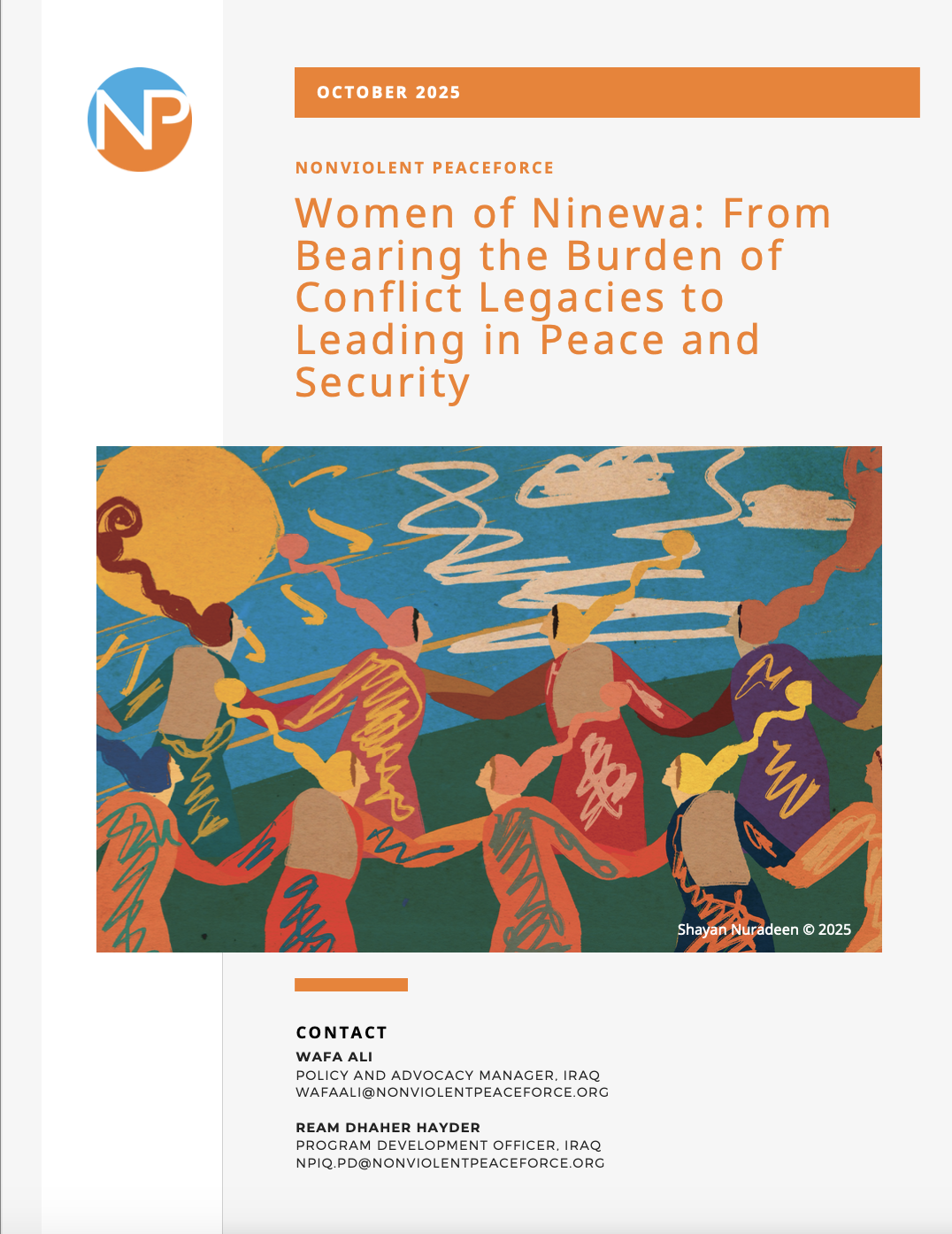
October 2025
Women of Ninewa: From Bearing the Burden of Conflict Legacies to Leading in Peace and Security
Programme Brief
Drawing on observations and findings from Nonviolent Peaceforce’s (NP) work in Ninewa, this brief explores how women’s roles are shaped and constrained in practice, while also identifying spaces where their leadership is already driving protection and peacebuilding. It seeks to inform policymakers, practitioners, and donors about the steps needed to strengthen women’s role in peace and security, and to ensure that national commitments under the Women, Peace, and Security (WPS) agenda translate into tangible outcomes on the ground.
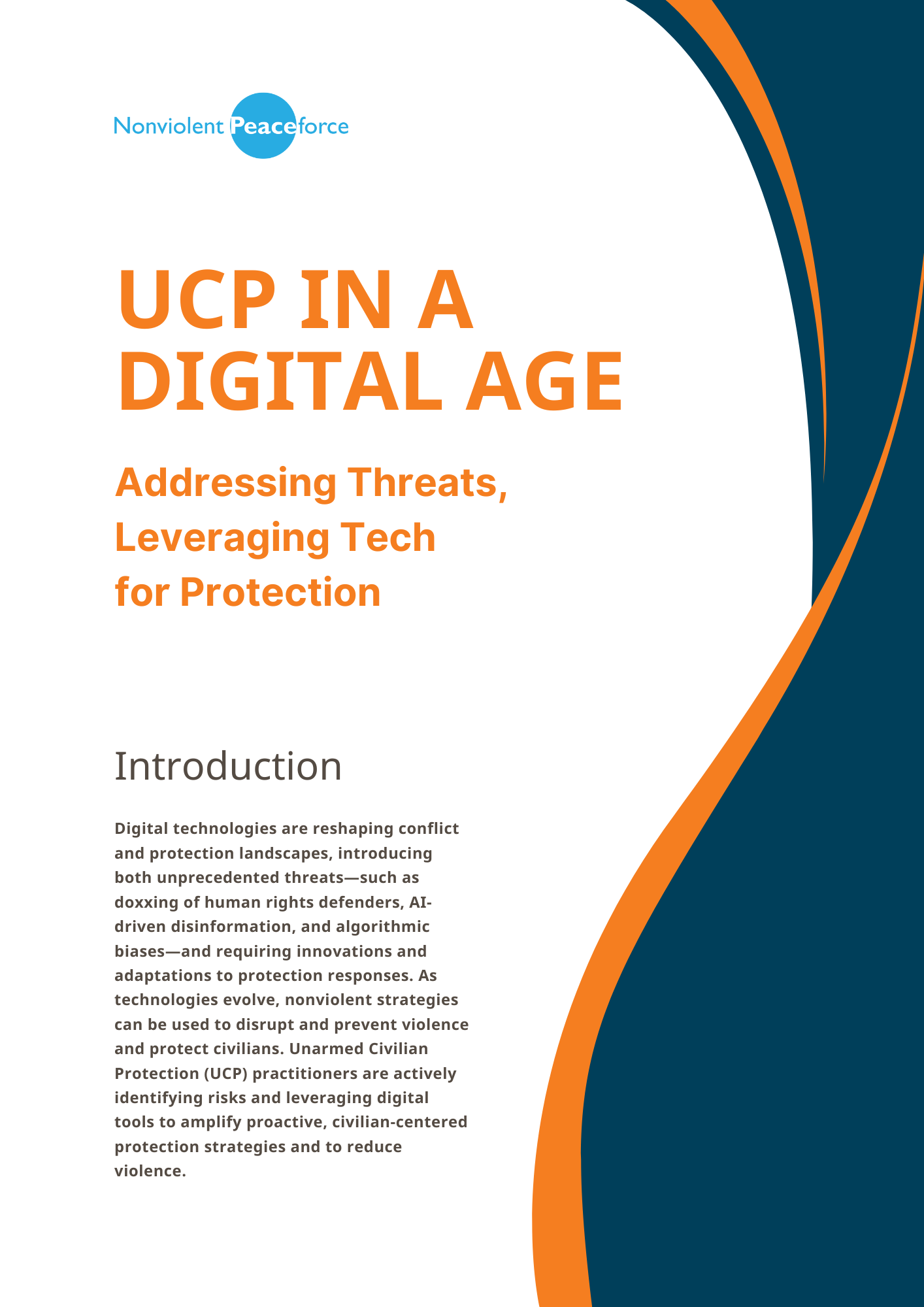
September 2025
UCP in a Digital Age
Issue Brief
Digital technologies are reshaping conflict and protection landscapes, introducing both unprecedented threats—such as doxxing of human rights defenders, AI-driven disinformation, and algorithmic biases—and requiring innovations and adaptations to protection responses. As technologies evolve, nonviolent strategies can be used to disrupt and prevent violence and protect civilians. Unarmed Civilian Protection (UCP) practitioners are actively identifying risks and leveraging digital tools to amplify proactive, civilian-centered protection strategies and to reduce violence.
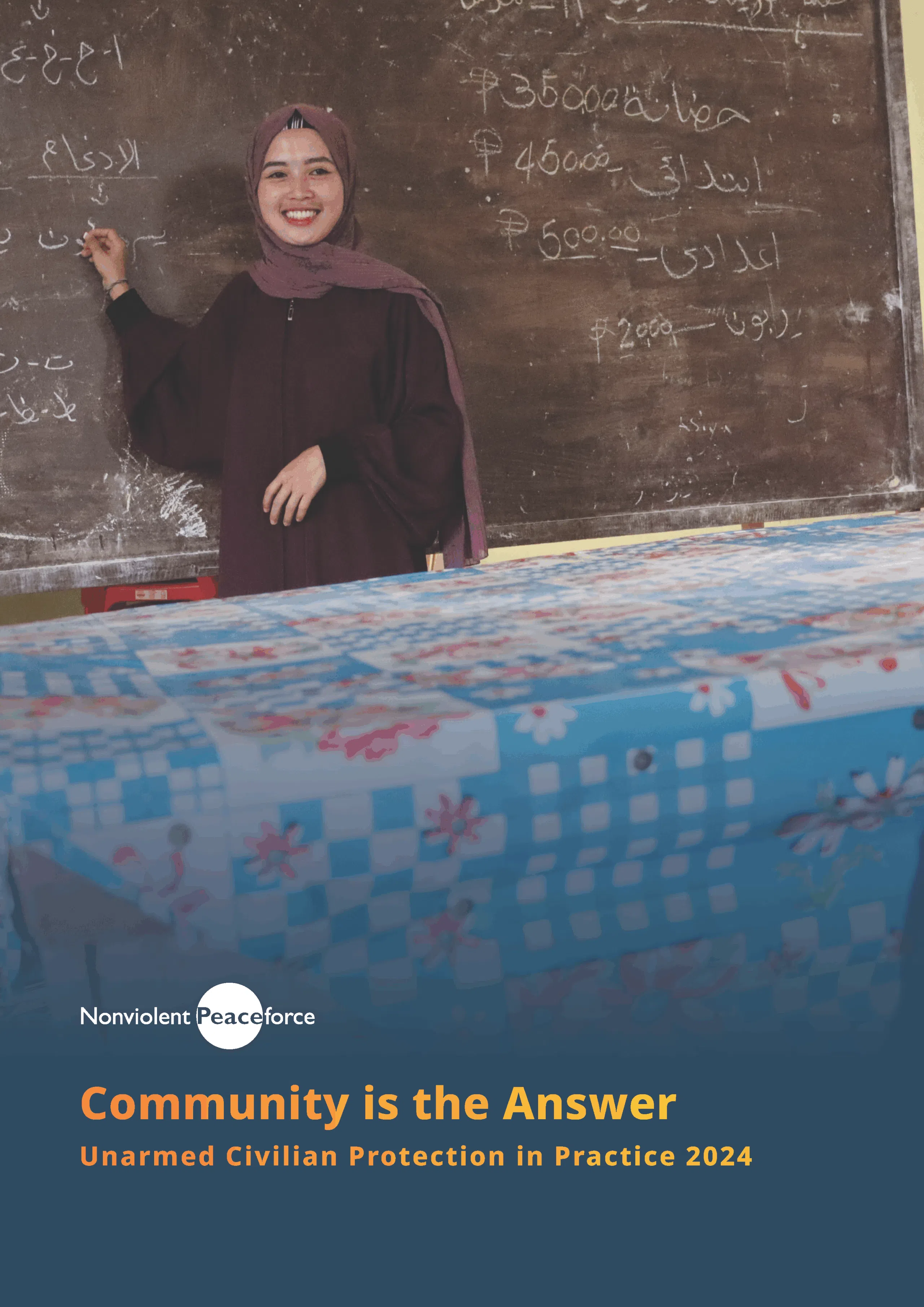
2024
Community is the Answer | Unarmed Civilian Protection in Practice 2024
Extended Annual Report
Amidst escalating violence against civilians, it is critical that we recognise examples of possibility and hope. This publication contains testimonies of fortitude, of lives saved, of relationships repaired—always amidst difficulty and violence, but pursued nevertheless. We hope these actions and insights remind us that prevention, protection, and repair are possible, of the importance of investing in peace and protection to save lives, and as inspiration for future action.
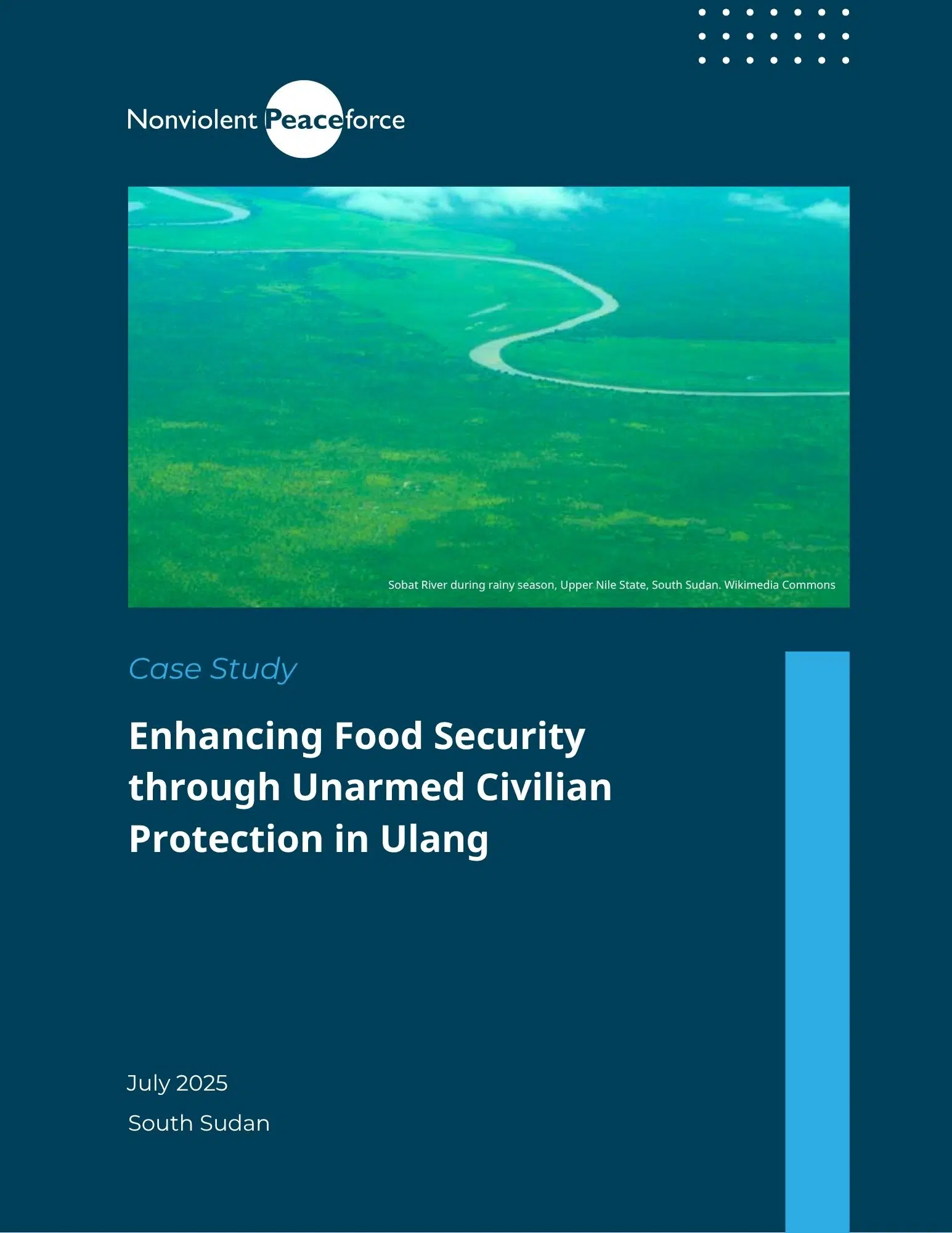
July 2025
Enhancing Food Security through Unarmed Civilian Protection in Ulang
Case Study
In Greater Ulang, an area with fertile land and accessible river water, folks avoid engaging in agricultural practices out of fear for their safety. Consequently, the protection issues arising from generalized insecurity perpetuate a chronic cycle of food insecurity that can extend beyond years and generations. NP has been working alongside communities to address these challenges in Greater Ulang.
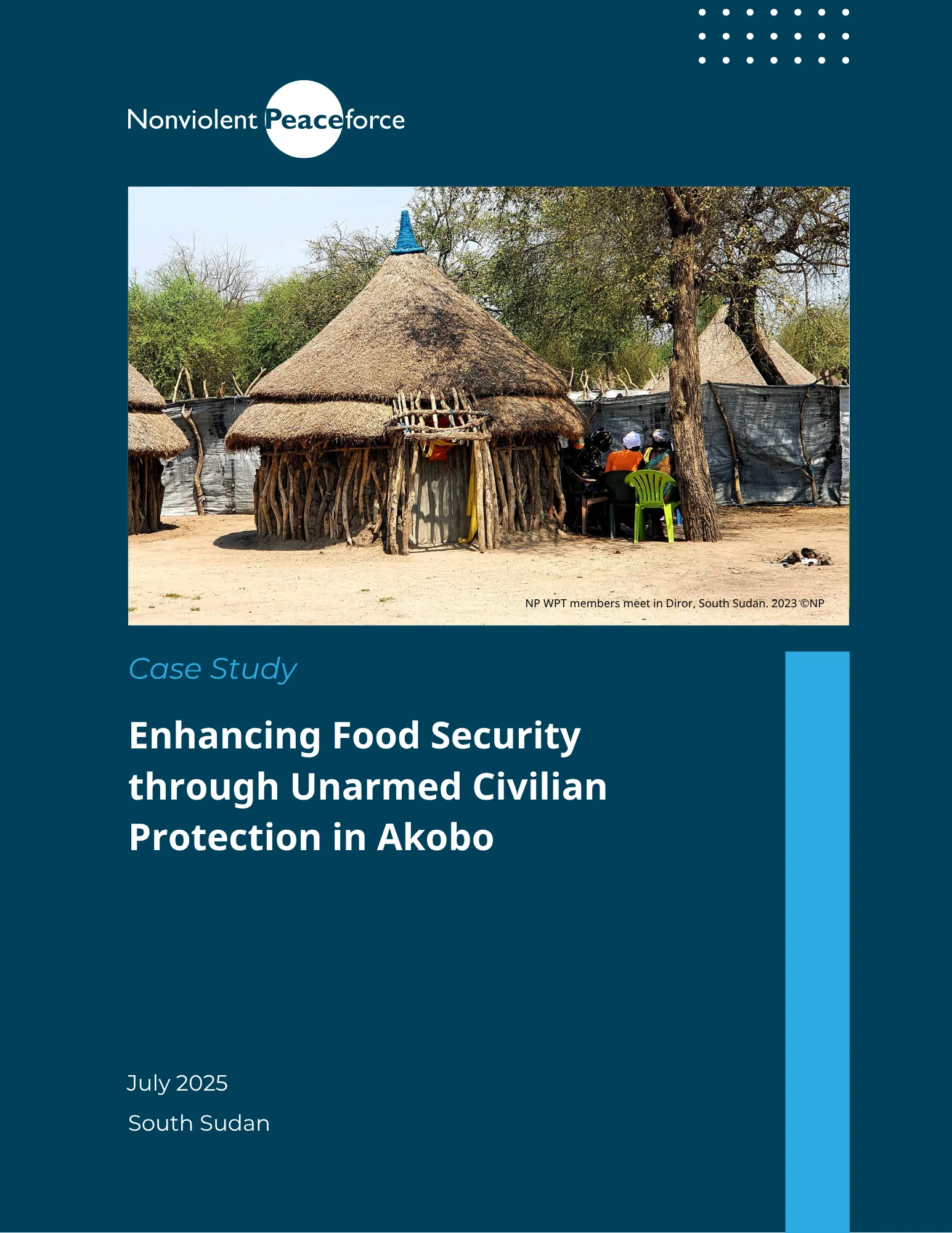
July 2025
Enhancing Food Security through Unarmed Civilian Protection in Akobo
Case Study
In Akobo County, the outbreak of conflict at a central food distribution site resulted in the complete suspension of the distribution site. Individuals, families, and communities uninvolved did not receive their food assistance as expected. Our staff facilitated a community security meeting in Diror to understand the status of the relationship between the Kaikuiny and Diror communities and identify if any strategies needed to be implemented to mitigate any potential violence during future planned food distributions.
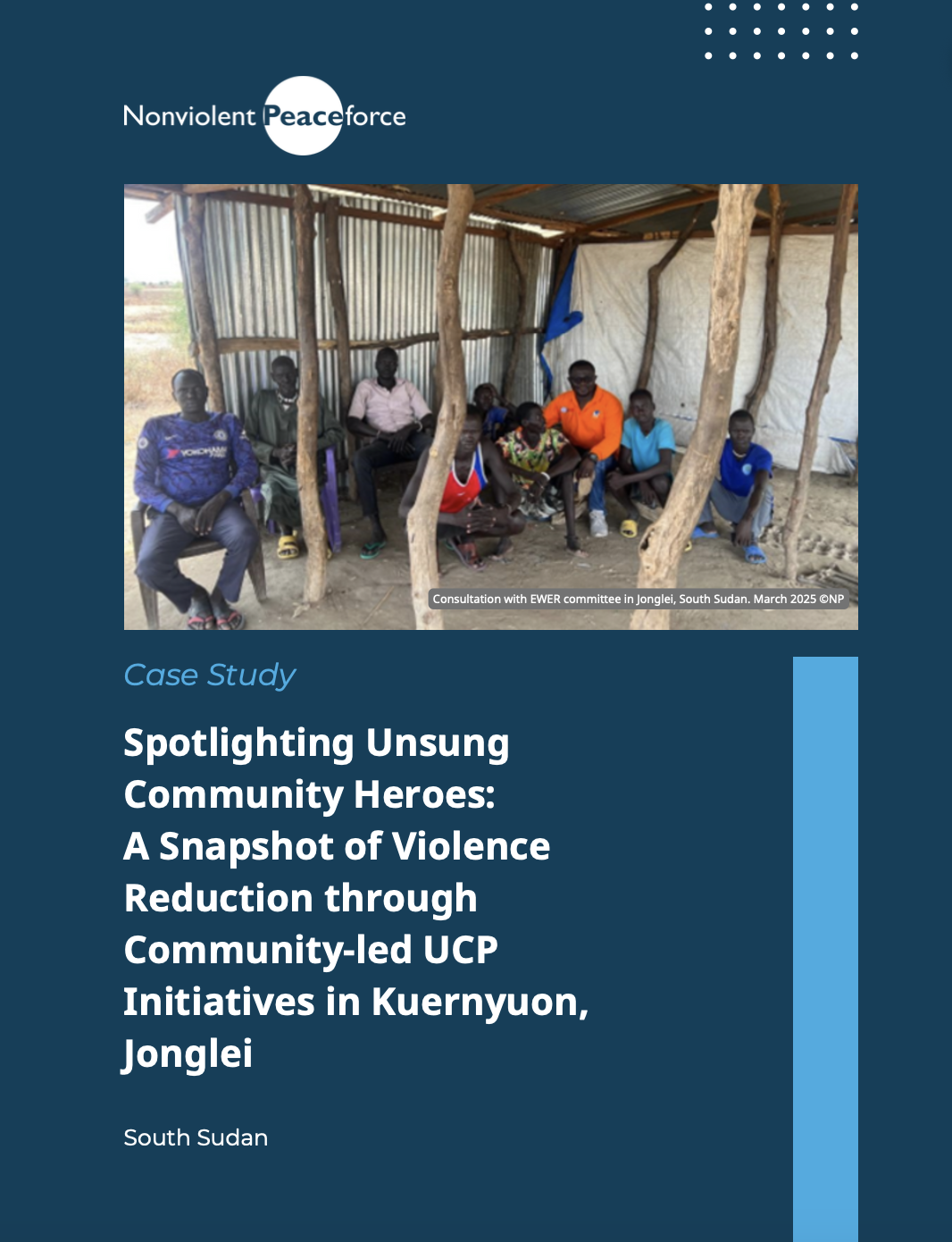
July 2025
Spotlighting Unsung Community Heroes: Violence Reduction through Community-led UCP Initiatives in Kuernyuon, Jonglei
Case Study
Through the leadership of local actors and the support of NP, the community of Kuernyuon in Buong Payam, Jonglei State, once plagued by child and women abductions and frequent cattle raids from neighboring communities, has begun a new chapter. Here's how they're using grassroots peacebuilding efforts to redefine safety and community protection.
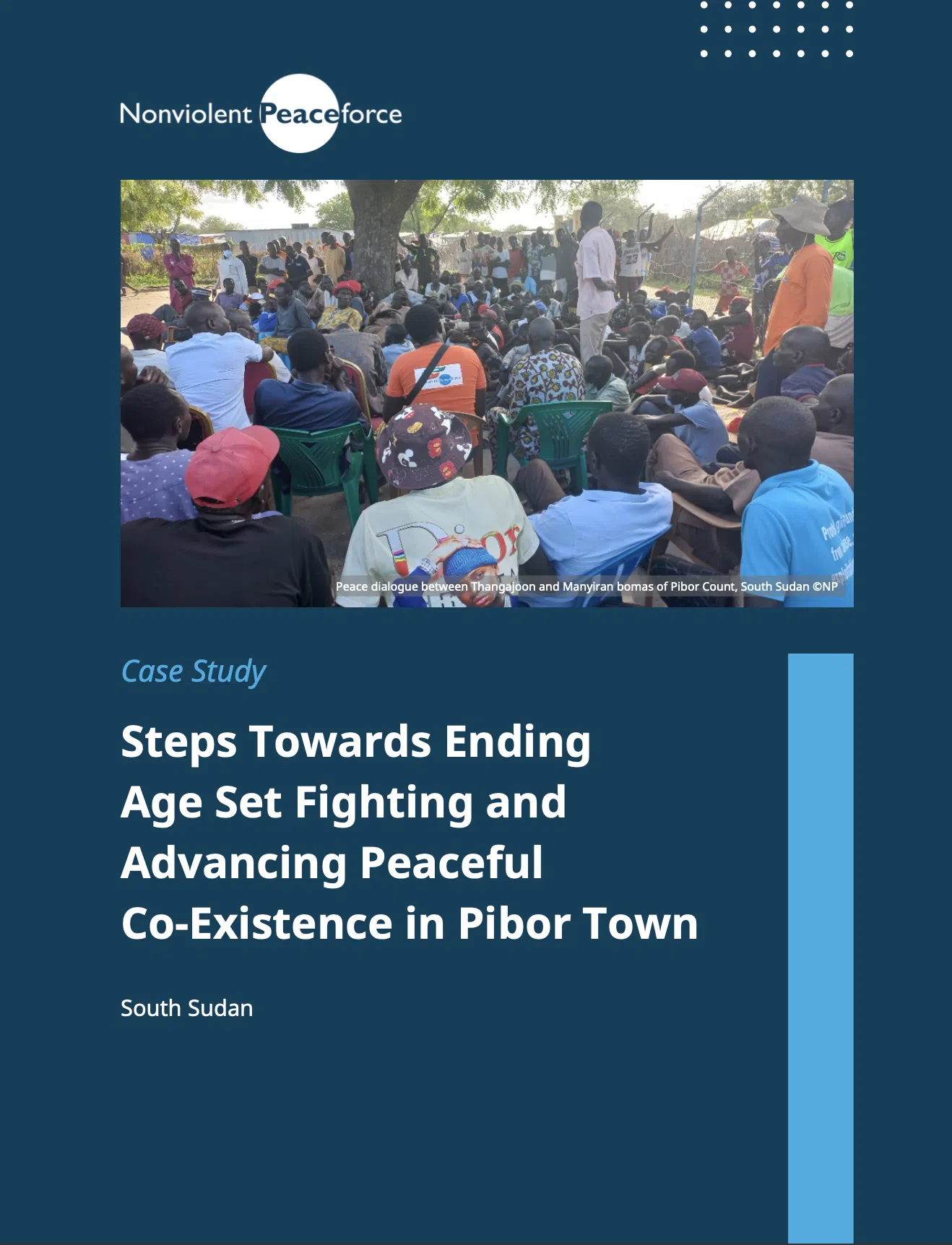
July 2025
Steps Towards Ending Age Set Fighting and Advancing Peaceful Co-Existence in Pibor Town
Case Study
Learn how NP is supporting Pibor Town as the town takes steps towards ending age set fighting and advancing peaceful co-existence.
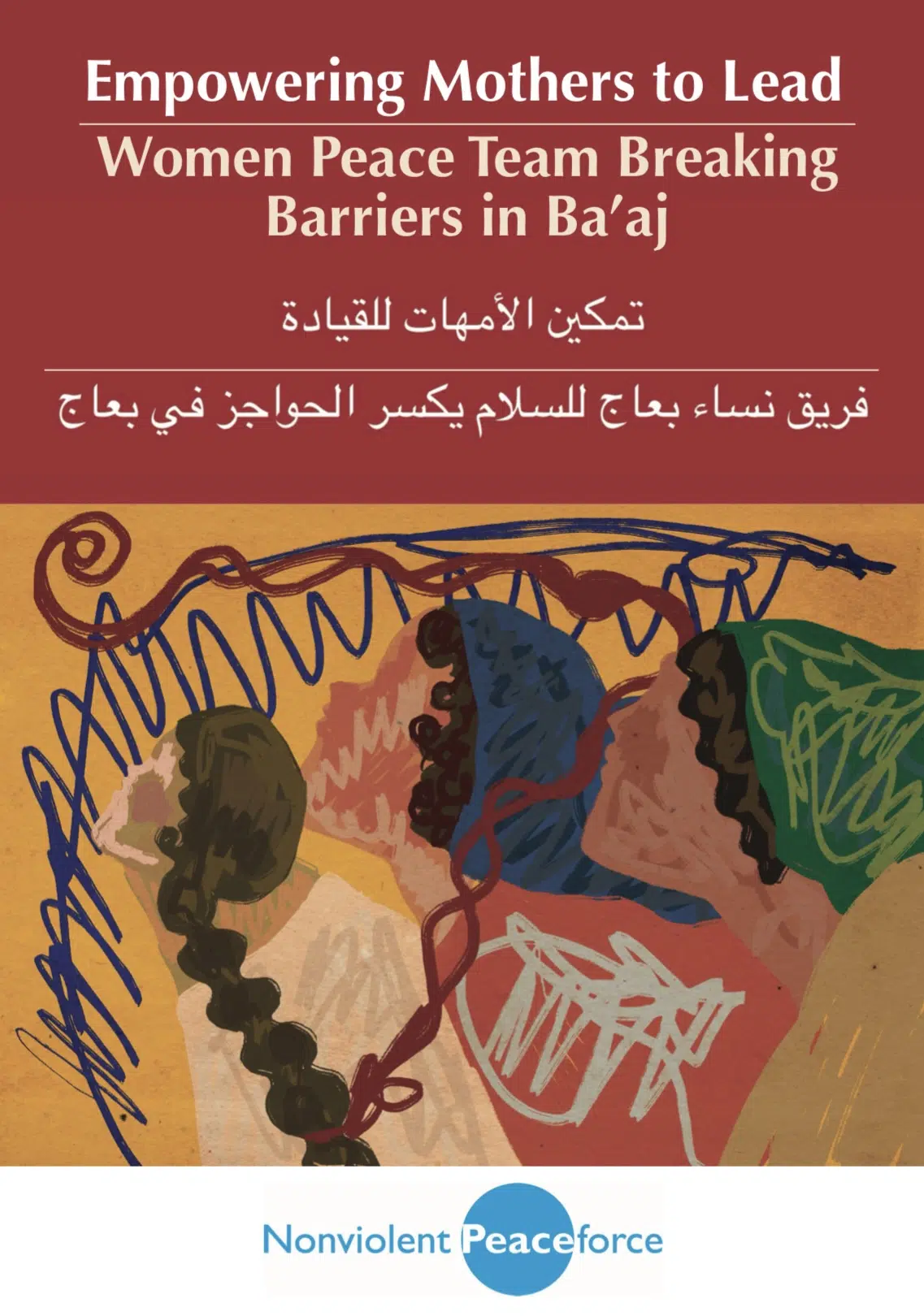
March 2025
Empowering Mothers to Lead: Women Peace Team Breaking Barriers in Ba’aj (Illustrated)
Case Study
In a community where women have long been excluded from decision-making, mothers are breaking barriers and leading a movement for change. What started as simple meetings between teachers and mothers has evolved into a powerful committee, ensuring girls' education and women’s voices are no longer overlooked. (With illustrations and translation in Arabic)
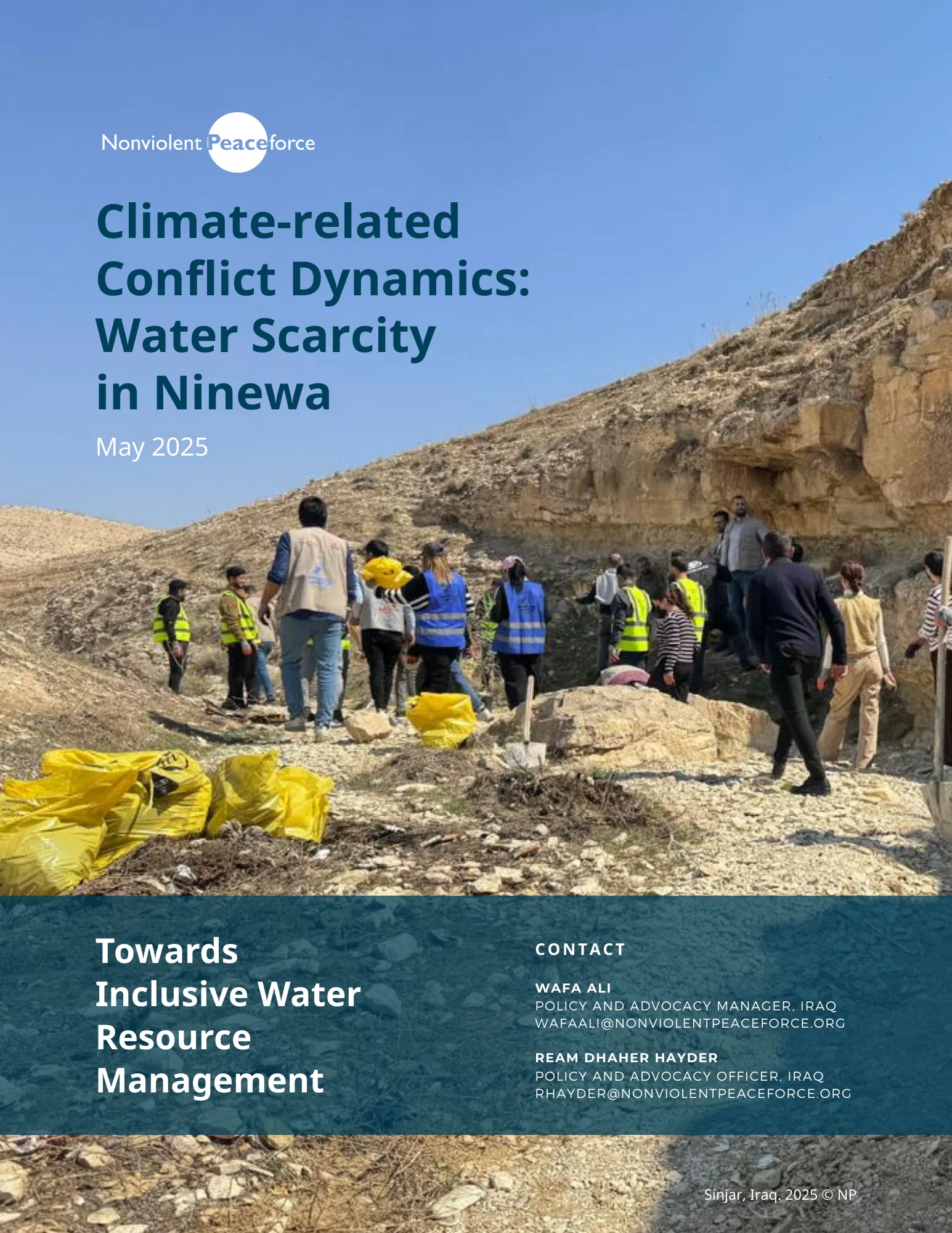
May 2025
Climate-related Conflict Dynamics: Water Scarcity in Ninewa
Programme Brief
This brief explores the intersection between water governance and conflict in Ninewa, where water scarcity evolves into a trigger for local tensions, displacement toward already overstretched towns, and the breakdown of social cohesion. It is aimed at highlighting the urgent need for community-centred approaches to reduce risks and promote sustainable, locally led solutions.
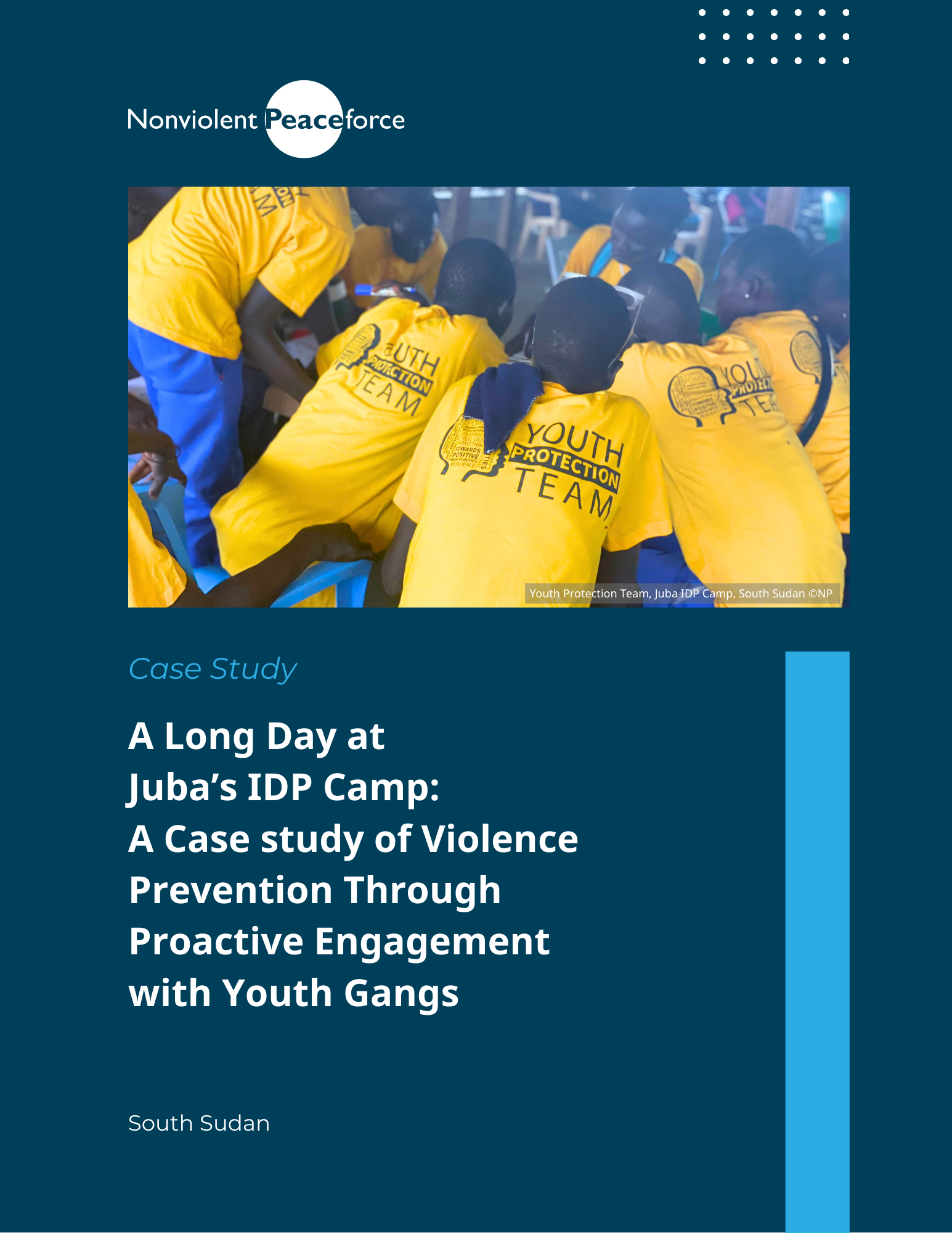
May 2025
A Long Day at Juba’s IDP Camp: A Case study of Violence Prevention Through Proactive Engagement with Youth Gangs
Case Study
Youth in Juba’s IDP camp helped prevent violence against civilians amid rising tensions. Members of the camp’s Youth Protection Teams, trained in nonviolence, drew on long-standing relationships to directly intervene and de-escalate the situation. Their actions prevented further violence and highlighted the impact of community-led protection and unarmed civilian strategies.
